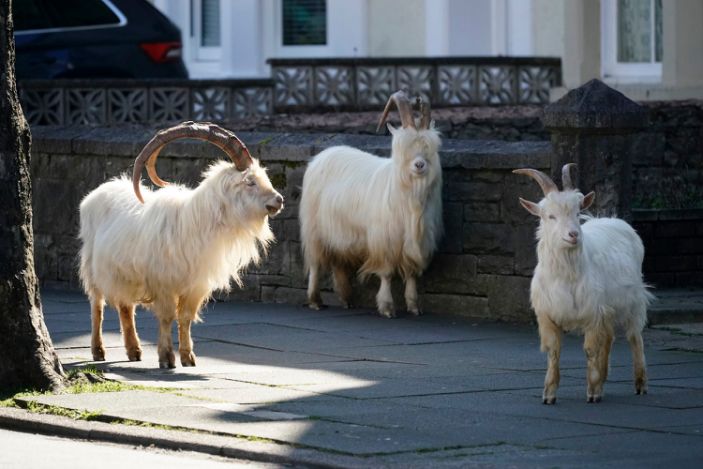As the coronavirus continues to spread around the world, more than a third of the planet’s population is under some form of lockdown, with many under order to stay at home and avoid social gatherings.
This lockdown has led to a profound impact on the global economy.
But fewer humans outside has also allowed the natural world to convalesce. Changes in pollution, air quality, and a resurgence of wildlife have all been observed in the months since the new coronavirus was first detected.
From cleaner beaches to less air pollution, photos, videos, and charts show how the world’s condition is improving while humans stay indoors.
To prevent the spread of the COVID-19 coronavirus and flatten the curve, many countries are practicing social distancing, or what the WHO is now calling physical distancing. The virus is transmitted via respiratory droplets, so maintaining physical distance from people can help protect you and others. People are staying inside, working from home, and only going out for essential activities. But how long will this period of social distancing last? Unfortunately, no one knows for sure. The answer is complicated, and it partly depends on our actions.
As the coronavirus pandemic continues to take hold of the world, many governments have imposed strict lockdown and social distancing measures in order to curb the spread of the disease. As of Wednesday evening, more than a third of the planet’s population is under some form of restriction, with many under order to stay at home and avoid social gatherings.
Limiting social gathering has led to declines in certain industries, like travel and hospitality, which has stunted the global economy. But fewer humans outside has also allowed the natural world to convalesce. Changes to pollution, air quality, and a resurgence of wildlife have all been observed in the months since the new coronavirus was first detected in Wuhan, China, in December 2019.
Yosemite National Park is home to about 300-500 black bears. Though there hasn't been an increase in their population since the park closure, bears have been seen more frequently than usual. Check out this bear caught on camera yesterday, climbing a tree next to ranger housing! pic.twitter.com/9rXxIOMRbR
— Yosemite National Park (@YosemiteNPS) April 14, 2020
Some environmentalists say that humans have put too much pressure on the natural world, leading diseases that typically exist in nature to spillover into humans.
“There are too many pressures at the same time on our natural systems and something has to give,” Executive Director of the United Nations Environment Program told The Guardian last month. “We are intimately interconnected with nature, whether we like it or not. If we don’t take care of nature, we can’t take care of ourselves.”
NASA and European Space Agency pollution monitoring satellites detected “significant decreases” in air pollution over parts of China in February compared to the month before.
While there is often a decline in air pollution around the Lunar New Year celebrations, NASA said this year there was more of a decrease than usual.
“This is the first time I have seen such a dramatic drop-off over such a wide area for a specific event,” Fei Liu, an air quality researcher at NASA, said in the report.
Source: INSIDER


